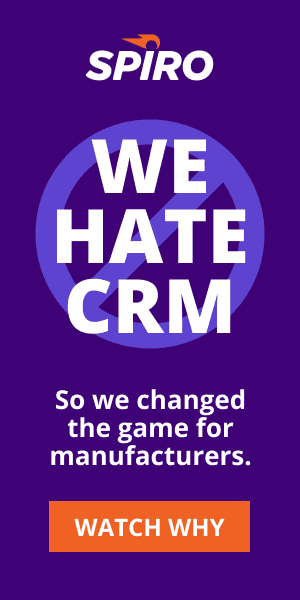5 Limiting Beliefs That Hold Salespeople Back
Whether we want to or not, we all hold beliefs about the world, about others, and, most importantly, about ourselves. Salespeople are no exception, and sometimes these beliefs can be a great thing, especially when they help us excel in our chosen profession and get over the inevitable setbacks that are thrown our way.
But there’s another side to that coin: limiting beliefs. These are the beliefs that are likely to hold us back. Some of these beliefs come from past failures, while others may be shaped by our upbringing or experiences with others. In either case, many limiting beliefs are inaccurate, and can hold us back for no reason at all.
Here are five common limiting beliefs that hold salespeople back:
1. “I don’t have the right personality for sales”
This is a common one, especially among those who believe they need to have a certain “type” of personality in order to excel in sales. The reality, however, is much different, as there are plenty of introverted, quiet, and shy people who thrive in sales roles. The truth is that just like prospects, there isn’t any one type of personality that is likely to lead to a closed deal. Human interactions are complicated, and even if you’re not an outgoing, center-of-attention type of person, you can still make it as a wildly successful sales rep.
2. “The prospect will never pay for this”
This limiting belief is wildly detrimental, because it forces a sales rep to give up on a deal before it’s even happened. We often make assumptions about prospects and their ability and willingness to pay without putting our theories to the test. If you assume that your product is overpriced or that the prospect is unable or unwilling to pay for it, then there’s no way you’ll be able to sell with conviction. So check your assumptions at the door and assume the opposite is true until you’re proven wrong.
3. “I can’t handle rejection”
Another common limiting belief is the idea that one is unable to handle rejection. Of course, some are better at it than others, and learning how to deal with rejection is a critical skill to have in sales. But the key is the “learning” part, as anybody (yes, anybody) can learn to increase their tolerance to rejection with enough practice. It comes down to this: rejection is a part of sales, and without it the job wouldn’t pay nearly as well as it does. Once you embrace and learn how to handle rejection, you’ll be well on your way to sales success.
4. “I’ll never get any better at this”
Similar to the above, this limiting belief forces us to believe that our abilities are immutable and that if we’re not good at something today, it means we won’t be good at it a year from now. Once you switch to a growth mindset, however — that is, a mindset that centers around the idea that you’re able to change and learn to do things you can’t do currently — you’ll start to see progress every month, and before you know it you’ll be doing things you’ve never thought you could do before. It can be a slow and gradual process, but with some persistence, this limiting belief can be completely eradicated, as it should be.
5. “I can’t see myself doing this for very long so why bother”
Some people can’t see themselves staying in sales for their entire career, and that’s perfectly fine. But many of these same people will take that long-term plan and turn it into a limiting belief, convincing themselves that if they’re not planning to make it a career, then they shouldn’t bother putting in any effort today. This is unfortunate because sales can give people the opportunity to make a life-changing amount of money in a very short period of time. That means that even if you don’t think you’ll be in sales five years from now, putting in some heavy effort today can give you the seed money to start that restaurant, finance that international trip, or just give you enough of a nest egg to not have to stress about cash while you make the transition into something else. Take advantage of today’s opportunities in order to build for the future. Not doing so does a disservice to your future self.

